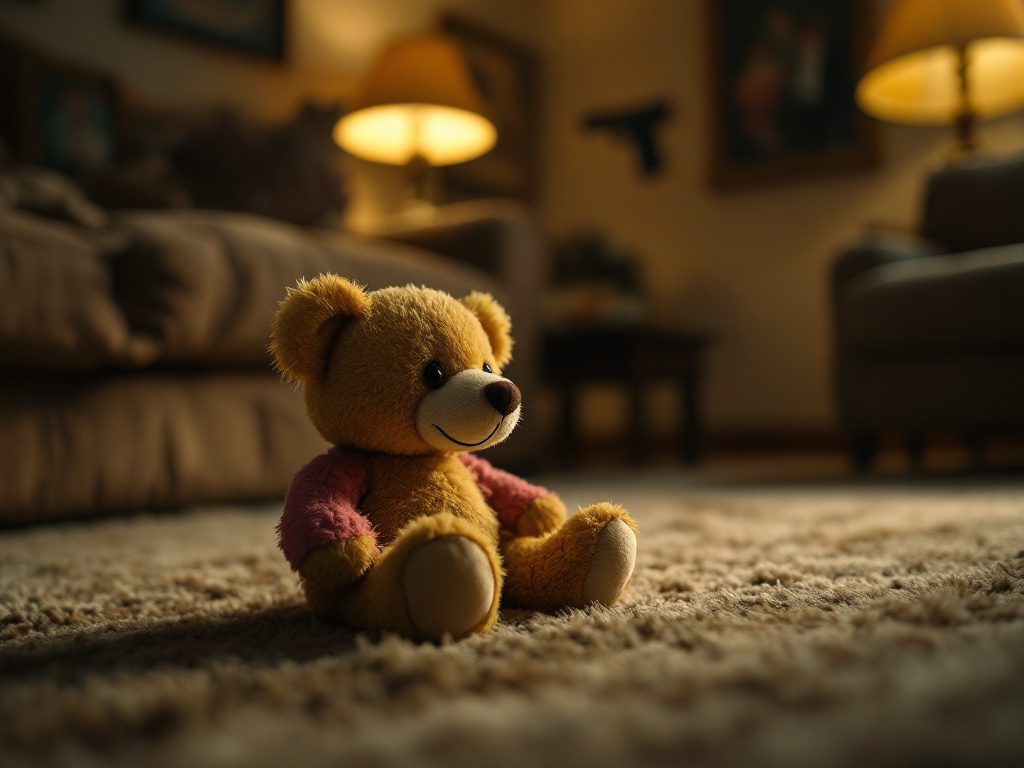Another Life Lost to Gun Negligence—And a Community’s Warning
One Easter morning in Jacksonville’s Wesconnett neighborhood, a tragedy unfolded that echoes across America with haunting regularity. A 2-year-old, left in the presumed safety of his home, accessed an unsecured handgun in his father’s bedroom and fatally shot himself. Police say the child’s mother was asleep; the weapon, a handgun, was not locked away. By the time paramedics arrived, hope had all but faded, and the boy was soon pronounced dead at the hospital.
The father, identified as Daryvan Kvon Spell, was not just a casualty of heartbreak; he became the subject of a criminal investigation. Charged with child neglect and culpable negligence, his prior record—pleading guilty last year to carrying a concealed firearm without a license—only sharpened scrutiny. The Jacksonville Sheriff’s Office, in concert with the U.S. Marshals Task Force and the State Attorney’s Office, acted swiftly, arresting Spell and issuing a very public warning: Legal consequences for gun negligence are real, and no amount of hindsight can undo irreversible harm.
What happened in Jacksonville is not an isolated horror. HealthyChildren.org reports that firearms are now the leading cause of death for U.S. children and teens under 18, outpacing even vehicle accidents. According to research shared by the sheriff’s office, roughly half of unintentional firearm deaths among children between 2001 and 2021 took place in the home, usually while children were playing with or showing a gun to a friend—a chilling reminder of how quickly curiosity can turn fatal when basic safety measures are ignored.
Why Laws and Safe Storage Matter—Far Beyond Politics
Gun debates in America tend to center around constitutional rights and urban crime, but the greatest hazard may lurk not on the streets, but within the four walls where families seek refuge each night. Safe firearm storage is not only a matter of common sense, but also state law in places like Florida. Law enforcement repeatedly urges gun owners to use lockboxes or safes, to store ammunition separately, and to talk candidly with children about the dangers of firearms.
But compliance remains tragically uneven. According to a Pew Research Center survey from 2023, roughly 4.6 million children in the U.S. live in homes with at least one loaded, unlocked gun. The reasons vary—some cite a misplaced belief in the ability to prevent accidents through vigilance alone. Others are victims of the toxic culture war rhetoric that frames even the most rational safety regulations as a slippery slope.
Isn’t it worth asking—who are these policies really protecting? Are gun locks or storage mandates an assault on liberty, or just the most basic acknowledgment that a child’s life trumps unfettered convenience? Public health experts, like Dr. David Hemenway of Harvard’s Injury Control Research Center, underscore that secure storage is as much about responsibility as it is about right. “In states where safe storage laws are strictly enforced, unintentional shootings involving children drop dramatically,” says Hemenway. Still, resistance persists, animated by paranoia over home invasions that almost never materialize, and stoked by gun lobby groups eager to preserve profits over public safety.
“When a child can access a loaded gun, it’s not an accident—it’s a foreseeable tragedy. Safe storage isn’t just recommended, it’s a moral and legal imperative.”
—Tamarra Hill, gun violence prevention activist
Accountability, Grief, and the Path Forward
A closer look reveals a justice system struggling to balance punishment with prevention. The father in Jacksonville—like Jeffrey Greene, arrested in a similar case in Chesterfield—now faces felony child neglect charges that could result in years behind bars. Defense attorneys argue over how far liability should stretch, but the law is clear: allowing a child to access a firearm that leads to injury or death is a felony in Florida and many other states. Beyond that, the legal system is forced to wrestle with the aftermath—families broken twice, once by loss, and again by prosecution.
This cycle demands more profound changes than charging individual parents after the fact. Progressive advocates urge a robust approach: universal safe storage mandates, resources for free or discounted gun locks, community education programs in schools and clinics, and real consequences for those who ignore these responsibilities. Policies should address the root causes, not just symptoms. Cultural shifts toward responsible gun ownership must be cultivated as deliberately as any law is written.
Jacksonville’s sheriff was blunt: Safe firearm storage is the law, but it should also be the default practice in every home with children. “Unfortunately, kids are curious and guns are deadly,” he observed, underscoring the urgency for every parent and gun owner.
Who bears the cost of inaction? It’s not the lobbyists or the politicians who stoke fear of regulation, but families like the Spells—ordinary parents plunged into extraordinary grief. You may never expect this tragedy in your own home, but odds suggest it could happen to anyone, anywhere, if we continue to treat secure gun storage as negotiable.
Gun safety is not a partisan issue when you’re the one staring into a child’s empty bedroom. The least we can do, as a society, is transform heartbreak into hope—starting by ensuring every gun in America is as secure as we expect every child to be.

